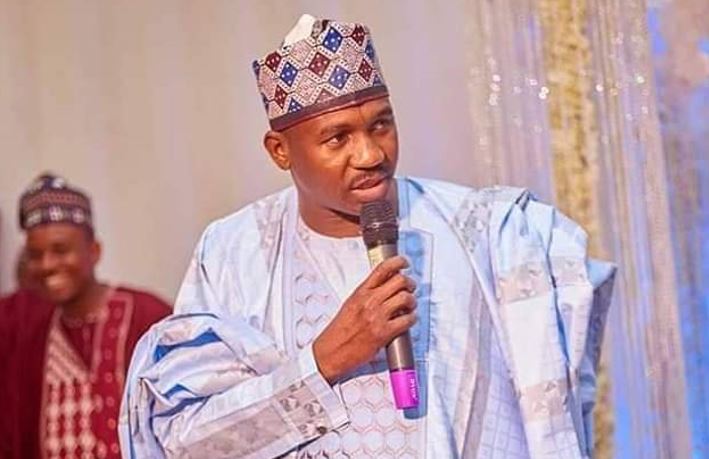Recently, Governor Ahmed Aliyu of Sokoto State officially launched the distribution of 500 tricycles and 1,000 motorcycles to youths in the 23 local government areas in the state. The initiative aims to create job opportunities and improve intra-city transportation, particularly in metropolitan areas.
In his speech at the flag off ceremony, Governor Aliyu recognised the increased demand for intra-city transportation, which according to him, was occasioned by the rapid urbanisation and emergence of new settlements in the state. He noted that the scarcity of tricycles and motorcycles in metropolitan areas has posed significant challenges, especially for women.
The governor revealed that the government made a substantial investment in the procurement of these means of mass transportation; adding that they were being offered at subsidised rates to make them affordable to beneficiaries. Governor Aliyu urged recipients to adhere strictly to the terms of the documented agreement; warning against the sale of the subsidised motorcycles at giveaway prices. “The era when public resources are taken for granted is over. This administration will not tolerate misuse of these assets, which were procured with taxpayers’ money,” the governor, represented by his deputy, Alhaji Idris Mohammed Gobir, stated.
Speaking on the initiative, Chairman of the Vehicle Distribution Committee, Ambassador Sahabi Isah Gada, disclosed that each tricycle would be sold for N1,000,000, significantly lower than the market price of N3.6 million, while motorcycles would be offered at N300,000, compared to the market price of N1.5 million. He said beneficiaries would be required to make an initial deposit of N150,000 for tricycles and N50,000 for motorcycles. A monthly remittance of N15,000 and N10,000 would respectively be made by the beneficiaries until the entire cost of the vehicle is repaid. Ambassador Gada assured the audience that legal frameworks and stricter monitoring measures had been implemented to prevent abuse of the empowerment scheme.
- Kano poultry farmers fault report of bird flu outbreak
- Third batch of 390 Nigerians repatriated from Niger arrives Kano
The movement of goods and services is an essential requirement for economic growth and prosperity. While the use of motorcycles for transportation could provide short-term relief within the context of a failed or ineffective national transport policy, motorcycles are by no means an alternative to mass transit. Our leaders are getting some of the solutions to our national challenges wrong because the problems are also wrongly perceived. For example, many state governors owing to their erroneous perception of governance hold misconstrued definitions of some socio-economic indicators that are critical to achieving economic prosperity including poverty, empowerment, and mass transportation.
Poverty is not about lacking money to expend. The poor is the one who lacks skills with which to earn a living; meaning that an individual with skills cannot be categorised as poor. Therefore, what Nigerian youths need most is skills from which they can provide their daily needs. Motorcycle riding is not a skilled job because it requires none; a strong reason why the distribution of motorcycles cannot be used to fight poverty. No matter how many times and for how long governors continue to distribute motorcycles to able-bodied youths who should have been empowered with technical and vocational skills, their battle against poverty is not likely to be won.
The teeming population of Nigerian youths needs skills empowerment in various sectors more than they need empowerment with motorcycles. The country’s agricultural sector provides enough opportunities for fighting poverty and unemployment. States and the federal governments are encouraged to explore this sector by re-directing the energy of millions of strong and healthy youths from motorcycle riding to exploiting the agricultural potentials waiting to be tapped through farming.
Operating a motorcycle requires a lot of energy, which is why a good number of commercial motorcycle operators, who desire to remain on duty throughout the day in order to meet up with their daily remittance target resort to hard drugs and substances. Besides this negative impact on the health of our youths and that of Nigerian society, the motorcycle is a perishable product that would not last forever. When it gets old, it becomes a burden on the operator rather than an asset that it hitherto used to be.
Governors should build motorable roads into the hinterlands because motorcycles cannot transport large quantities of agricultural products to markets. This corroborates our argument that motorcycles and tricycles are, indeed, not sustainable alternatives to mass transit. They do not offer permanent solutions to our mass transportation deficits.
The seasonal distribution of motorcycles to youths further exposes the norm among state governors of always seeking the easiest path out of every critical problem that affects citizens. The temporary solution offered by motorcycles is only a temporary postponement of the evil day. Poverty and unemployment are better fought and conquered through the empowerment of youths with skills, not motorcycles.

 Join Daily Trust WhatsApp Community For Quick Access To News and Happenings Around You.
Join Daily Trust WhatsApp Community For Quick Access To News and Happenings Around You.


